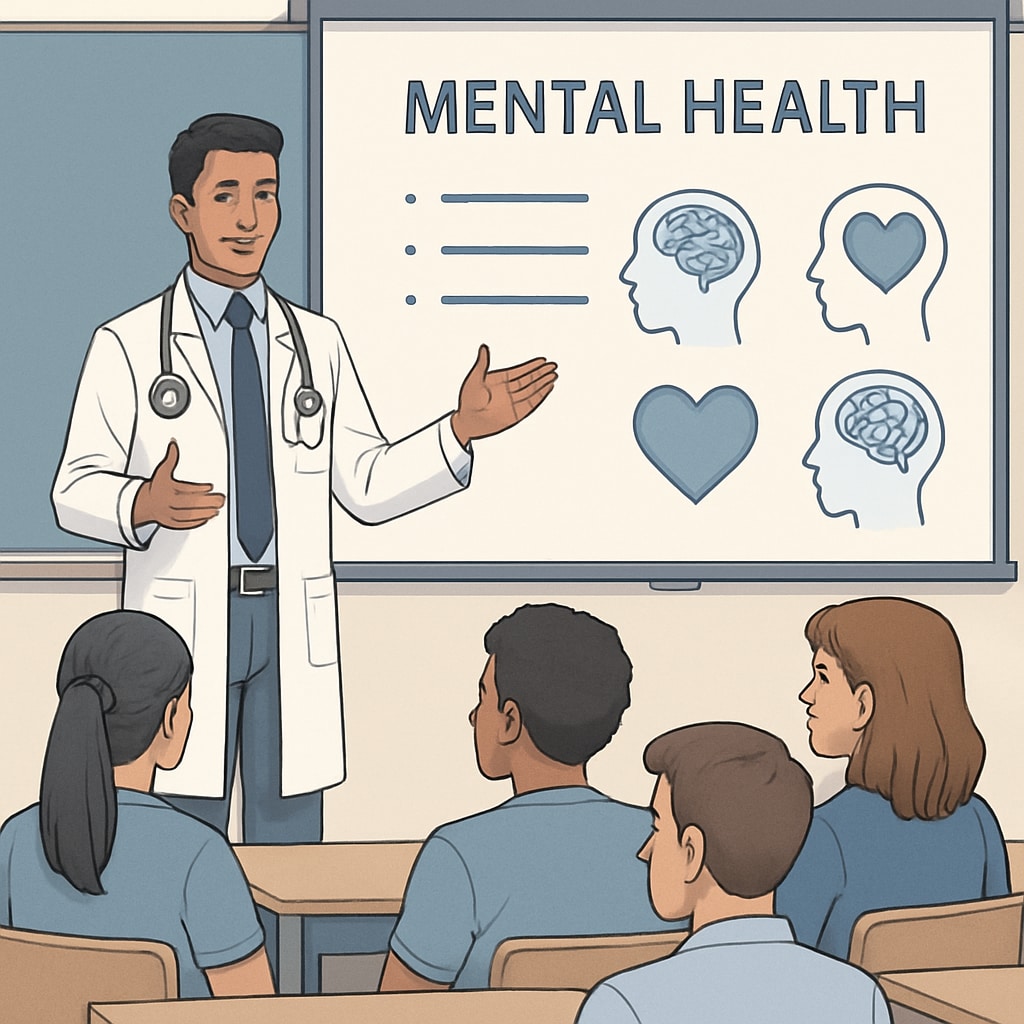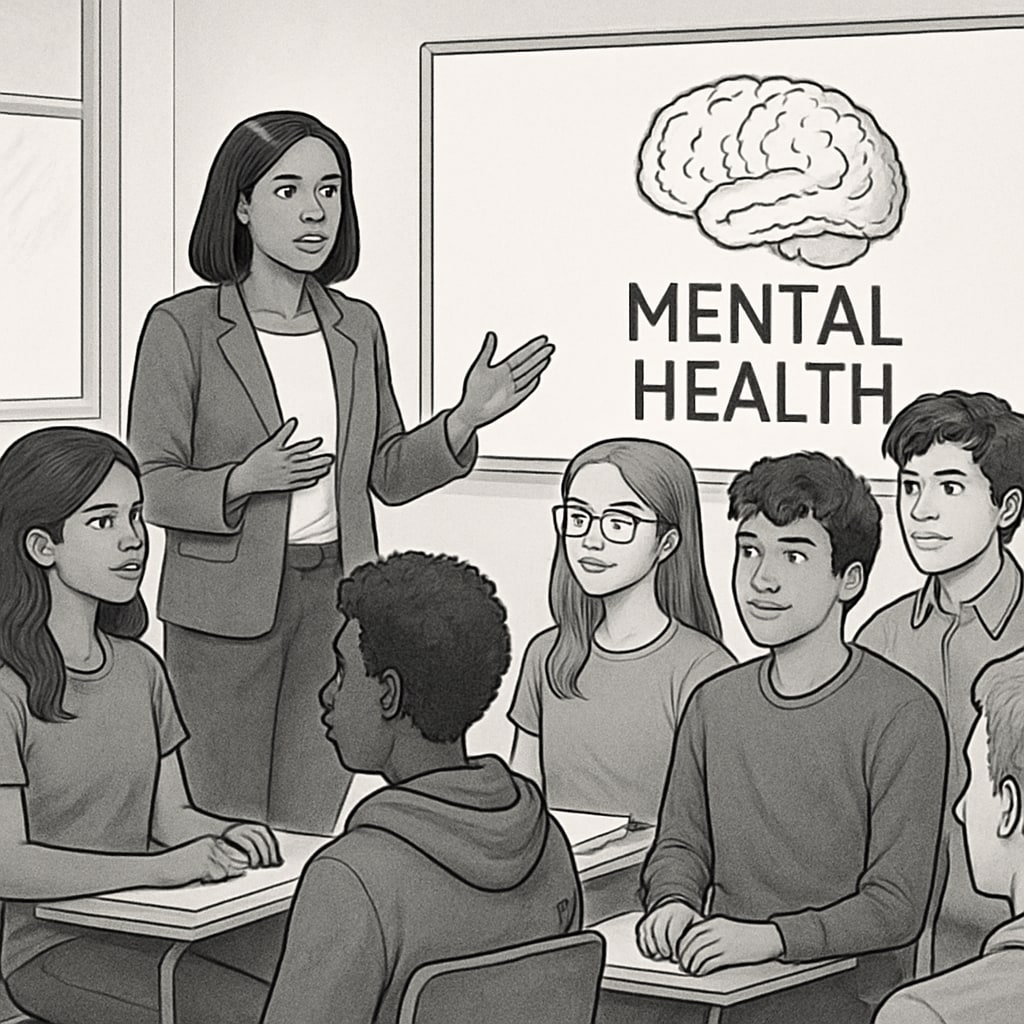Teenagers today face significant mental health challenges, ranging from academic pressure to social media influence. As future healthcare professionals, medical students have the unique opportunity to bridge the gap between mental health expertise and youth advocacy by organizing mental health talks for high school students. These events not only provide valuable insights to teenagers but also empower medical students to practice essential communication skills and community engagement. This article delves into the importance of such initiatives, provides actionable steps for implementation, and highlights factors that contribute to a successful event.
The Value of Mental Health Talks for High School Students
Mental health issues among teenagers have become a pressing concern globally. According to the World Health Organization (WHO), depression and anxiety are leading causes of illness and disability in adolescents. Schools, as primary environments for youth development, are ideal settings for addressing these challenges. Medical students, equipped with foundational knowledge in psychology, can contribute by simplifying complex concepts and addressing common myths surrounding mental health.
These talks can offer several benefits:
- Awareness: Teens learn to recognize signs of mental health struggles in themselves and others.
- Destigmatization: Open discussions normalize seeking help and reduce societal stigma.
- Practical Strategies: Students gain tools to manage stress, build resilience, and identify support systems.
By focusing on these areas, medical students can create a lasting impact on their younger audience.

Steps to Organize a Successful Mental Health Talk
Planning a mental health talk requires careful consideration of both the audience and the content. Below are the key steps to ensure a meaningful and effective event:
- Understand the Audience: Research the specific challenges faced by high school students in the target community. Tailor the talk to address their needs.
- Collaborate with Schools: Partner with school administrators, counselors, and teachers to secure a venue and promote the event. Ensure alignment with school policies and schedules.
- Craft Engaging Content: Use relatable examples and interactive elements such as role-playing or Q&A sessions. Avoid overly technical language.
- Leverage Visual Aids: Incorporate slides, videos, or handouts to enhance understanding and retention of key concepts.
- Practice and Rehearse: Practice delivering the talk to peers or mentors to refine your messaging and delivery style.
In addition, consider involving mental health professionals or experienced speakers to add credibility and depth to the discussion.
Key Factors for a Memorable Event
While preparation is crucial, the success of a mental health talk also depends on how the event is executed. Here are some tips for creating a positive and lasting impression:
- Empathy and Approachability: Adopt a warm, non-judgmental tone to make students feel comfortable sharing their thoughts.
- Interactive Elements: Encourage audience participation through group activities or anonymous feedback tools.
- Follow-Up Resources: Provide a list of trusted mental health resources, helplines, and school counselors for students who may need additional support.
- Feedback Mechanism: Gather feedback from attendees to improve future talks and understand the impact of your message.
Ultimately, the goal of these talks is to foster a supportive environment where teenagers feel empowered to prioritize their mental well-being.

Conclusion: Building Bridges Through Knowledge
Organizing mental health talks for high school students presents an incredible opportunity for medical students to make a meaningful contribution to their communities. By addressing critical topics such as stress management, emotional resilience, and mental health awareness, these events can create a ripple effect of positive change. With thoughtful preparation and a genuine commitment to helping others, medical students can inspire teenagers to view mental health as a vital aspect of their overall well-being.
In a world where mental health challenges are increasingly prevalent, initiatives like these serve as bridges connecting knowledge, empathy, and action. By stepping into the role of educators and advocates, medical students not only enhance their own skills but also contribute to a healthier, more informed generation.
Readability guidance: Use short paragraphs, actionable lists, and relatable examples. Emphasize clarity and empathy to engage both medical students and high school audiences effectively.


